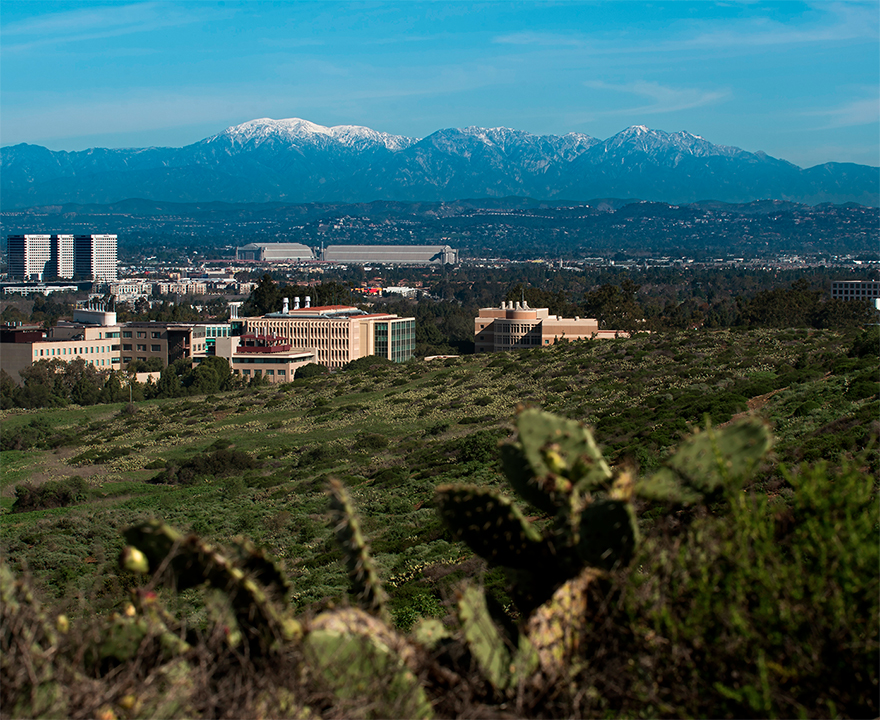NSF funds UCI project to boost STEM degree success for underrepresented students

NSF funds UCI project to boost STEM degree success for underrepresented students
- November 2, 2021
- The Institute for Meaningful Engagement will emphasize faculty, classroom impact
-----
The National Science Foundation has awarded almost $3 million over a five-year period to The Institute for Meaningful Engagement at the University of California, Irvine. This new education project will explore the environmental factors prompting underrepresented students to leave science, technology, engineering and math programs and investigate how faculty can foster better classroom cultures to retain them. A multidisciplinary leadership team will partner with the deans of UCI’s six STEM schools to accomplish this.
Pheather R. Harris, director of the university’s California Alliance for Minority Participation, is the mastermind behind this innovative intervention that emphasizes faculty impact on student success in STEM. She wants to see two outcomes upon completion of the project: “The first is for faculty to recognize who they are in this conversation we’re having about inclusion and be able to have the tools they need to continue the work of enhancing inclusive spaces. [The second is] for every single student to feel a sense of belonging, to feel seen and heard in their academic experience, and to achieve their full potential without the influence of the environment deterring them from their original goals and dreams.”
Harris will be joined by:
- Michael Dennin, vice provost for teaching & learning and professor of physics & astronomy
- Brian Sato, associate dean of teaching excellence and innovation and professor of teaching in molecular biology & biochemistry
- Natascha Buswell, assistant professor of teaching in mechanical & aerospace engineering
- Glenda Flores, associate professor of Chicano/Latino studies
For her part, Flores, who specializes in qualitative methodologies, will lead focus groups with UCI undergraduates to obtain data that will be critical in informing and guiding the T.I.M.E. curriculum.
In the first phase of the five-year project, leadership at The Institute for Meaningful Engagement will lay a foundation of local and national data related to STEM retention that will inform T.I.M.E. participants – faculty members known as T.I.M.E. Champions – about best practices and behaviors in the classroom setting. In the second phase, T.I.M.E. Champions will learn about the systemic inequities that have existed in STEM programs for many generations, examine their own related experiences and try to build a deeper understanding of underrepresented students’ experiences. Finally, T.I.M.E. leadership will observe Champions in action and recommend modifications to classroom practices and policies that align Champions with what they learned in T.I.M.E.
Each of the six STEM school deans will nominate two faculty members to participate in T.I.M.E., and there will be two cohorts that will each spend two years in the program. They will attend nine classes taught by T.I.M.E. leadership; complete two other inclusivity-related elective courses, such as those offered by UCI’s Office of Inclusive Excellence; and undergo a series of classroom observations. Then each Champion will conduct a workshop to share what they learned with at least 10 other faculty members from their STEM school. Those workshops will expand the reach of T.I.M.E. from 12 to 132 instructors. After two cohorts, T.I.M.E. could affect 264 STEM faculty members.
Fostering inclusivity “is an area that many faculty do not have formal training in, so providing this training is critical to help faculty rethink the classroom design and experience,” Dennin said. “We are at a time when this is something more and more faculty want to do – and are looking for the resources and support to achieve this.”
There are also plans to integrate community partnerships into T.I.M.E. Santa Ana College will offer a slightly scaled-down version of the program for members of its faculty. T.I.M.E. leadership will communicate progress and successes and challenges encountered to the NSF Includes National Network to benefit scholars interested in advancing similar work within the academic community.
Harris hopes that T.I.M.E. will continue beyond its five-year projection, promoting greater change, and is grateful for the immense collaboration that led to its creation. “The students see it. Other faculty, administration and staff see it, and it makes a big difference that we’re all coming together to address [STEM inclusivity in higher education] with a unified intent,” she said.
-Cara Capuano and Ryne Hodkowski, UCI
-----
Would you like to get more involved with the social sciences? Email us at communications@socsci.uci.edu to connect.
Share on:
Related News Items
- Careet RightThe weight of the white coat: Addressing California's Latino physician shortage
- Careet RightFirst-rate advice for first-year and first-generation Anteaters
- Careet RightThe Weight of the White Coat: Latinos Navigating American Medicine
- Careet RightDickson receives grant to apply computational cognitive models to language acquisition
- Careet RightQ&A with Glenda Flores, author of "The Weight of the White Coat"


